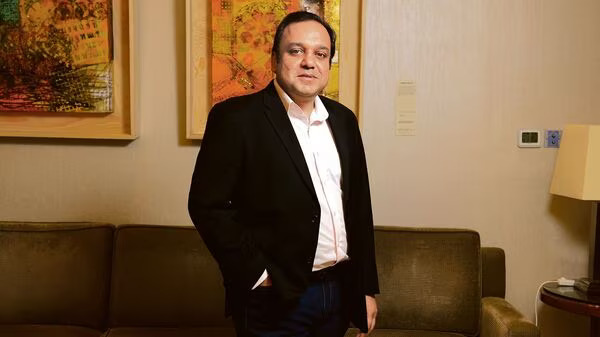In a recent twist of events, Punit Goenka, the prominent figure in the Indian business landscape, has once again captured headlines by seeking a stay on the SEBI ban. This bold and strategic move has sparked debates and discussions within the financial and corporate circles. Let’s delve into the details of this intriguing development and explore its implications in this 1000-word blog.
Punit Goenka’s Background and SEBI Ban
Punit Goenka, scion of the illustrious Essel Group, has been a significant player in the media and entertainment industry. His leadership at Zee Entertainment Enterprises Ltd. (ZEEL) has been marked by both innovation and challenges. However, the recent SEBI ban has cast a shadow over his career. The Securities and Exchange Board of India (SEBI) imposed a ban on Goenka and certain other entities linked to the Essel Group, alleging violations of market regulations. This ban restricted them from dealing in securities market instruments for a certain period.
The Strategic Move: Seeking Stay on SEBI Ban
Facing a ban from participating in the securities market can have profound implications on an individual’s financial clout and reputation. Punit Goenka’s move to seek a stay on the SEBI ban is a calculated and strategic step to regain control over the narrative. It’s an attempt to challenge the ban and present a case for its reconsideration. This move signals his determination to protect his interests and reputation, which have undoubtedly been tarnished by the ban.
Legal Grounds and Counterarguments
Goenka’s legal team is likely to present a series of arguments to support the stay application. They might question the severity of the ban and its impact on his financial stability and career. The legal team could also argue that the alleged violations were unintentional or the result of systemic issues within the organization. Moreover, they might highlight Goenka’s efforts to rectify the situation and implement stronger compliance mechanisms.
However, it’s important to acknowledge that the SEBI ban was imposed following an investigation, and SEBI’s decisions are generally grounded in substantial evidence. Critics might argue that seeking a stay on the ban could be a delay tactic rather than a genuine attempt to address the underlying issues. They could emphasize the need for accountability and transparency in the corporate world.
Implications for the Industry and Investors
Punit Goenka’s move to challenge the SEBI ban could set a precedent for how other corporate leaders respond to similar situations. If successful, it might embolden other individuals and entities to contest regulatory actions more aggressively. On the flip side, if the application for a stay is rejected, it could reinforce the regulatory authority’s power and strengthen market integrity.
For investors, this situation adds a layer of complexity to their decision-making. The outcome of Goenka’s case could impact investor confidence in ZEEL and the Essel Group. A positive resolution might lead to a surge in investor trust, while a negative outcome could trigger further doubts about the group’s governance and compliance standards.
The Public Perception and Media’s Role
The media’s role in shaping public perception cannot be ignored. Punit Goenka’s case has already garnered significant media attention, and the narrative around his move will play a pivotal role in influencing public opinion. Positive media coverage portraying Goenka’s efforts to rectify the situation could help restore his reputation to some extent. Conversely, negative coverage might deepen the skepticism surrounding his intentions.
Conclusion: A High-Stakes Gamble
Punit Goenka’s decision to seek a stay on the SEBI ban is undoubtedly a high-stakes gamble. It represents a strategic maneuver to reclaim control over his narrative and financial reputation. As the legal proceedings unfold, the outcome will have implications far beyond Goenka’s personal and professional sphere. It will influence how regulatory actions are perceived, how corporate leaders respond to adversity, and how investors assess the risks associated with specific entities.
Whether Goenka’s move proves successful or not, it underscores the intricate interplay between corporate governance, regulatory oversight, public perception, and media dynamics. As the story continues to evolve, one thing remains clear – the world is closely watching the outcome of this compelling saga.


